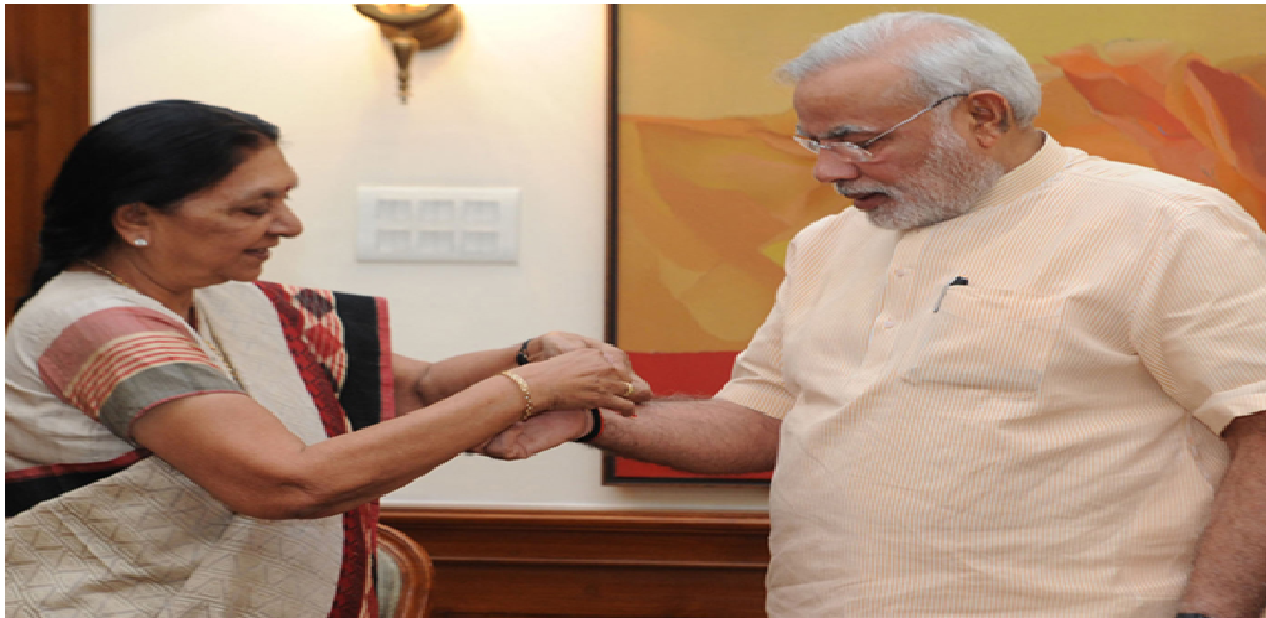Three Protests,Two Heads: BJP Reels Under The Power of the People

NEW DELHI: Gujarat Chief Minister Anandiben Patel has been finally been compelled to resign. The news plants can give her a dignified exit citing age as the reason ---she is to be 75 years old soon---but it is well known within political circles that she has outlived the one life she had been given by her mentor Prime Minister Narendra Modi when she met him in Delhi last.
That meeting was after the Patel stir that had rocked Gujarat, spread like wildfire, with the Chief Minister and her government unable to control it. The stir had thrown up Hardik Patel as a leader who was arrested on charges of sedition, kept in jail for over eight months without bail, and finally released by the courts with the condition that he would not stay in Gujarat. He is currently in Rajasthan, but the Patel community remains agitated and have been threatening another protest.
The resignation now comes after an unprecedented Dalit protest in Ahmedabad with thousands creating history in Gujarat by taking the united pledge not to remove carcasses. This comes as part of the protests. after four Dalit youths were flogged publicly for skinning a dead carcass. The Dalits have united in Gujarat, with their anger reverberating across Uttar Pradesh where BJP President Amit Shah and the party is working overtime to win the forthcoming Assembly elections.
It is perhaps not a coincidence that Anandiben Patel’s resignation came after Shah was unable to address a scheduled rally that was called off as the BJP was unable to collect 40,000 Dalits in Agra. This was billed as a major event, as it was to coincide with the arrival of the Dhamma Chetna yatra in the city, that was integral to the party’s effort to woo the Dalits in UP by sending Buddhist monks to persuade the marginalised community to vote for the BJP. However, not even 400 Dalits turned up to receive the yatra of ‘Modi’s Monks’ as Opposition leaders now refer to them.
The action against Anandiben Patel might be too little, too late for the BJP. The Dalit protests that snowballed into this huge rally in Ahmedabad, however, gave her powerful detractors in the state to push her out. As media reports quoting ‘sources’ have claimed, Shah and Patel have been at loggerheads for a while with the former gunning for her exit. This was almost imminent after the state erupted in violence with the Patel agitation, but PM Modi personally ensured her a second chance that has now clearly been exhausted.
In the high power politics, the BJP that is divided into factions in Gujarat will have some difficulty in naming an acceptable leader. There have been suggestion, again through the media, of sending Shah back to the state as the Chief Minister but he is visibly reluctant, preferring the national stage. Besides, Gujarat has become a difficult state to govern with the ongoing Dalit protests claiming the head of the Chief Minister. The Patels who are simmering on the sidelines, and the Dalits constitute a good 25% of the vote bank in Gujarat and both communities had not been opposed to the BJP proactively in the past. In fact the Patels were always considered BJP supporters, although now the party is finding it difficult to woo them back into its fold. BJP seniors hope that a new chief minister in the saddle will be able to rid him or herself of the baggage, and start wooing the communities afresh.
The protests by students had in an almost similar fashion toppled the then seemingly invincible Human Resource Development Minister Smriti Irani a few weeks ago. In confrontation with students Irani had delivered a eye-flashing, finger-pointing speech in the Lok Sabha that had PM Modi tweeting his appreciation. However, the adverse response on the social media took away from the sense of success, with Irani moving from charge to charge as a personalised acronym of conciliation. Political sources suggested that the RSS, worried about the confrontation with students, was keen to replace Irani with a minister who could take forward the agenda without provoking the young who had voted in bulk for the BJP in the Lok Sabha polls. The choice settled on Prakash Javadekar who with his smile, and affable style is now able to sit in consultation with the RSS on the education syllabus and related issues without drawing attention, or flak.
It is not as if anything has changed in Jawaharlal Nehru University or in Hyderabad Central University in terms of freedom and rights, it is only that the Minister is not drawing attention to it with a desire to be in the spotlight. And the student protests that drew considerable support across the country rattled the RSS/BJP to a point where it dropped a favourite Minister in the hope that the student constituency will react positively and allow the BJP to pick up the pieces left behind by Irani at least insofar as the middle of the road student community is concerned.



